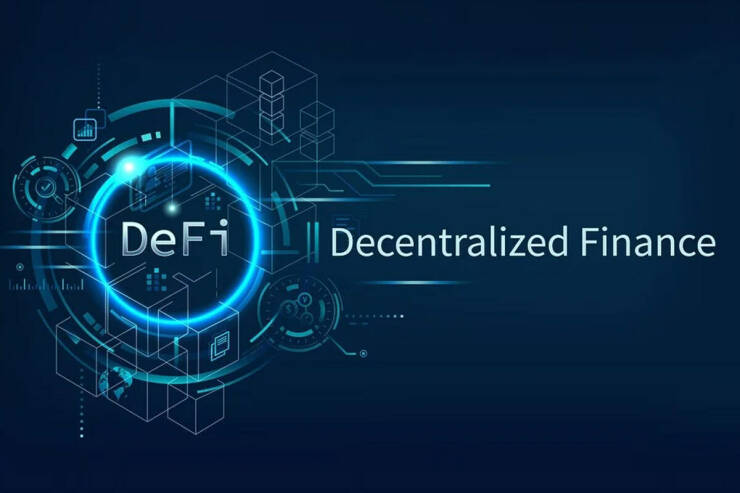The concept of decentralized currency has been at the forefront of discussions in the financial world for several years. As traditional financial systems grapple with issues of centralization, control, and security, decentralized financial systems offer an alternative that is both innovative and transformative. This blog post will explore the role of decentralized currency in facilitating decentralized financial systems, highlighting its importance, benefits, and potential future impact.
The Role of Decentralized Currency in Decentralized Finance (DeFi)
Decentralized Finance, or DeFi, represents a paradigm shift in the way financial systems operate. Unlike traditional financial systems that rely on central authorities, DeFi is built on decentralized networks, allowing for the creation of open, transparent, and permissionless financial products and services.
How Decentralized Currency Powers DeFi
Decentralized currencies are the backbone of the DeFi ecosystem. They facilitate a wide range of financial activities, including lending, borrowing, trading, and investing, without the need for intermediaries. Here’s how decentralized currency plays a pivotal role in DeFi:
Enabling Peer-to-Peer Transactions
Decentralized currencies allow users to engage in peer-to-peer transactions directly, without the need for a third-party intermediary such as a bank or payment processor. This reduces transaction costs and speeds up the process, making financial services more accessible and affordable. You can also explore Eralmonum App for further information.
Providing Collateral for DeFi Applications
Many DeFi applications require collateral to operate effectively. Decentralized currencies can be used as collateral in these applications, providing a secure and reliable means of ensuring the stability of the system. For example, users can lock their decentralized currency into a smart contract to receive a loan, knowing that their assets are secure and that the terms of the contract will be enforced automatically.
Facilitating Decentralized Exchanges
Decentralized exchanges (DEXs) allow users to trade digital assets without relying on a central authority. Decentralized currencies are the primary assets traded on these exchanges, providing liquidity and enabling users to participate in the market without the need for intermediaries. This promotes a more open and competitive financial environment, where users have greater control over their assets and trading strategies.
Benefits of Decentralized Financial Systems
The integration of decentralized currency into financial systems offers several distinct advantages over traditional financial models. These benefits are driving the growing interest and adoption of decentralized finance worldwide.
Increased Financial Inclusion
One of the most significant benefits of decentralized financial systems is their potential to increase financial inclusion. Traditional financial systems often exclude individuals who do not meet specific criteria, such as having a minimum account balance or living in a particular geographic region. Decentralized financial systems, on the other hand, are open to anyone with an internet connection, allowing for greater participation and access to financial services.
Enhanced Security and Privacy
Decentralized financial systems offer enhanced security and privacy compared to traditional financial systems. Because transactions are recorded on a public ledger and secured by cryptographic techniques, the risk of fraud and hacking is significantly reduced. Additionally, users can maintain their privacy, as they do not need to provide personal information to participate in the system.
Lower Costs and Greater Efficiency
By eliminating intermediaries and automating processes through smart contracts, decentralized financial systems can significantly reduce transaction costs and increase efficiency. This not only makes financial services more affordable but also speeds up transaction times, providing a more seamless user experience.
Challenges and Future Prospects of Decentralized Currency in DeFi
While decentralized currencies offer numerous benefits, they also face several challenges that need to be addressed to realize their full potential in decentralized financial systems.
Regulatory Uncertainty
One of the most significant challenges facing decentralized currencies and financial systems is regulatory uncertainty. As these systems operate outside of traditional regulatory frameworks, there is a lack of clarity on how they should be governed. This uncertainty can deter potential users and investors, hindering the growth and adoption of decentralized finance.
Scalability Issues
Scalability is another critical challenge for decentralized financial systems. As the number of users and transactions increases, the systems must be able to handle the increased load without compromising performance. Current decentralized networks often struggle with scalability, leading to slower transaction times and higher fees. Continued innovation and development are needed to address these issues and ensure that decentralized financial systems can scale effectively.
The Need for Improved User Experience
For decentralized financial systems to achieve mainstream adoption, they must offer a user experience that is as intuitive and user-friendly as traditional financial services. This includes easy-to-use interfaces, seamless onboarding processes, and robust customer support. Improving the user experience will be crucial to attracting new users and retaining existing ones.
Conclusion
Decentralized currency is a critical component of the emerging decentralized financial ecosystem, providing the foundation for a more open, transparent, and inclusive financial system. While there are challenges to overcome, the potential benefits of decentralized finance are immense, offering a promising alternative to traditional financial systems. As technology continues to evolve and regulatory frameworks become clearer, decentralized currencies and financial systems are likely to play an increasingly important role in shaping the future of global finance.




